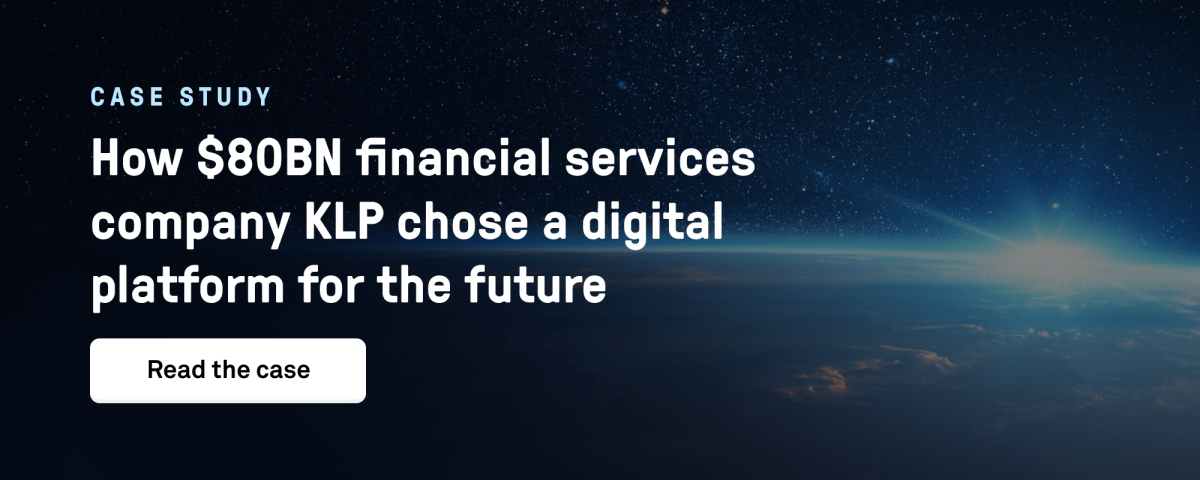
6 things you can't forget when choosing a CMS
Follow these tips for the best process of choosing a new CMS for your organization.
Written by Vegard Ottervig on
Choosing the right CMS is no easy undertaking, with an overwhelming number of considerations to make. You have to keep tabs on an abundance of information—customer requirements, deadlines, technical specifications, shortlists, communications, and internal stakeholders.
It is easy to drown in this sea of information overload, but in order to keep you on track we have gathered six essentials you must not forget when choosing a CMS.
1. Company goals and strategy
While taking a deep dive into technical documentation of any potential candidate for the next digital experience platform, it is easy to forget the broad picture. Even if a given feature of a CMS is technically impressive, it might not fit into the stated corporate purpose of your CMS project.
Don't forget the organizational framework you are working within! Consult with the C-suite or leadership group and maintain a regular meeting schedule where you touch base and see whether the KPIs are being fulfilled or whether your project is deviating from the company goals.
Always ask yourself what the company strategy is and how a chosen CMS can satisfy every touchpoint or milestone along the way. Remember: function over flashiness, substance over style.
2. Modern content platform
A great CMS should of course offer rich functionality and modern features. But there is one important requirement: the CMS should fit your organization’s current architecture and existing technology. Just like you can't buy any CPU to any motherboard, you can't acquire a CMS without first checking compatibility with your current suite of CRM, ERP, IT infrastructure, and digital tools.
A modern, flexible, and agile content management system can integrate with current tech through the use of APIs, plugins, and apps. You should however make sure to check the underlying programming language—both back-end and front-end—to see whether your developers possess the necessary skills.
See also: Why we are building our new website with Next.js and headless CMS »
3. Security and certifications
In the search for a CMS with the right functionality, great UX, and appropriate architecture, it is easy to overlook the security aspect. This, however, is just as important as the other factors—or even more so due to brand protection.
You should check if the CMS is tested using security frameworks like OWASP, and that it has been penetration tested. Another crucial factor is whether the vendor is ISO certified. An ISO certification provides further security assurance and ensures that the vendor follows industry standards in its operations.
4. Established standards
Speaking of standards, the CMS platform under consideration should adhere to current standards within programming and technology. These standards include JavaScript, JSON, LDAP, and OAuth.
Also, find out if the platform is open-source or not. While there may be both advantages and disadvantages with an open-source platform, a clear advantage is that you, your developers, or risk experts can investigate the code and verify it yourselves.
Read also: Composable architecture: The CMS as your digital experience orchestrator »
5. Self-hosting or PaaS
In the world of digital experiences, you need to ask yourself whether your CMS should be self-hosted by your organization or if you should opt in for a Platform as a Service (PaaS) solution.
This is an important decision to make, which will have ramifications for years to come. You need to find out if your organization have the required skills to run the platform yourselves, or whether it is possible to acquire the CMS and hosting as a service from the vendor or from other suppliers.
6. Implementation
When all is said and done, and your organization has chosen a CMS, someone needs to implement the system and set it up correctly. This is obviously a task you should have ready from day one, and therefore you need to map and retrieve the right resources at an early stage.
Should you train your own developers? Should you hire a consultancy partner? Or should you do a mixture? Involve your stakeholders and lay out the battle plan early on, together with the corporate strategy and technical requirements of the CMS.
***
With these topics covered, your digital project is more likely to both succeed in being implemented and becoming a long-term benefit for your organization as well.
First published 23 October, updated 9 January 2023.

